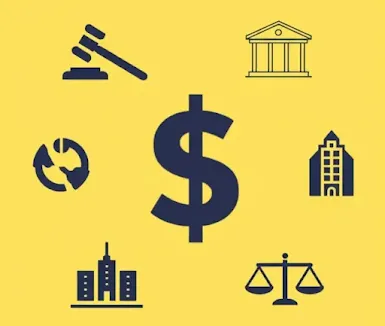What Determines the Value of the U.S. Dollar? 7 Key Factors You Should Know
Intro: Hook + Brief Overview
The US dollar is one of the most powerful currencies in the world. It's the lifeblood of international trade, central banks' go-to reserve currency, and global finance benchmark. But what exactly determines the value of the US dollar?
If you've ever wondered why the dollar rises or falls—or how it compares to other currencies—this article is for you. In this post, we'll break down the 7 key factors that influence the value of the US dollar and help you understand how the world's most important currency really works.
1. Interest Rates Set by the Federal Reserve
The Federal Reserve, often called "the Fed," plays a massive role in the dollar's value. When the Fed raises interest rates, it usually strengthens the dollar. Why?
Higher interest rates make US assets more attractive to investors because they offer better returns. This increases demand for dollars, pushing their value up.
On the flip side, lower interest rates can weaken the dollar, as investors might move their money elsewhere in search of higher returns.
2. Inflation Rates in the US Economy
Inflation erodes the purchasing power of a currency. If inflation rises faster than expected, the value of the dollar typically drops—unless the Fed responds by raising interest rates.
But moderate inflation is expected and often built into financial models. What spooks the market is unexpected or runaway inflation, which signals that the dollar may buy less tomorrow than it does today.
Investors hedge against this by moving to other currencies or assets, reducing demand for the dollar.
3. Supply and Demand in Foreign Exchange (Forex) Markets
The forex market is where currencies are bought and sold. Like any other commodity, the value of the US dollar depends on supply and demand.
- If more people want to buy the dollar, its value rises.
- If more people want to sell the dollar, its value falls.
Demand can spike due to geopolitical tensions, economic news, or financial market shifts. The more confidence global investors have in the US economy, the higher the demand for dollars.
4. US Trade Balance (Exports vs. Imports)
The trade balance affects currency flow. When the US imports more than it exports (a trade deficit), dollars flow out of the country to pay for foreign goods.
This increases the supply of dollars globally, which can weaken their value over time.
However, trade deficits don't always mean a weak dollar. If foreign countries reinvest those dollars into US assets (like stocks or Treasury bonds), demand can balance or even exceed supply.
5. Political and Economic Stability
One major reason the US dollar remains strong globally is the relative stability of the US political system and economy.
In times of uncertainty—wars, market crashes, or political turmoil—investors often flock to the dollar as a safe haven. This "flight to safety" drives up demand, even if the US is not directly involved in the crisis.
6. Government Debt and Fiscal Policy
The US national debt and fiscal policies (like tax cuts or spending increases) can also influence the dollar's value.
- High government debt may scare investors if they believe the US could struggle to repay.
- However, the US dollar remains strong in part because US Treasury bonds are considered one of the safest investments in the world.
The key is confidence. As long as markets believe the US can handle its debt, the dollar remains in demand.
7. Global Events and Investor Sentiment
Global events—from pandemics to oil price shocks—can trigger sudden changes in investor behavior. For example:
- In the 2008 financial crisis and the 2020 pandemic, investors rushed to the dollar.
- During oil price shocks or European debt crises, the dollar often strengthened as people looked for safe places to store wealth.
In many cases, investor psychology matters as much as fundamentals. News headlines, market fear, and rumors can move the dollar in ways that aren't always logical.
Wrapping It Up: Why This Matters to You
Whether you're an investor, business owner, or just curious about the economy, understanding the value of the dollar can help you make smarter financial decisions.
The next time you see headlines about the dollar hitting new highs—or lows—you'll know exactly why. You'll understand how the Federal Reserve, inflation, trade, and even investor emotions all play a role in shaping the dollar's strength.





